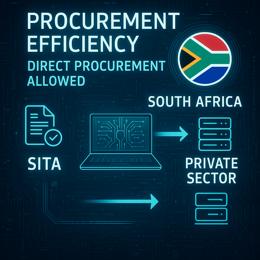Image created by AI
South Africa's DWS Reaffirms Commitment to End Bucket Sanitation
South Africa has long struggled with the "undignified" bucket toilet system, but the Department of Water and Sanitation (DWS) has once more vowed to prioritize the elimination of this outdated sanitation infrastructure. Water and Sanitation Minister Pemmy Majodina, during a media briefing on the department’s plans for the 2024/25 financial year, highlighted the progress and remaining challenges in the Free State and Northern Cape.
To date, 26 of 33 projects have been completed in the Free State, removing about 32,000 bucket toilets, leaving around 10,000 still in use. Similarly, in the Northern Cape, 29 of 30 projects are done, with only 596 buckets left to eradicate. However, Majodina acknowledges the limitations of the Bucket Eradication Programme, which does not cover all provinces, since new bucket systems have emerged in both formal and informal settlements outside the scope of the 2012 identification.
To widen the impact and ensure the dismantling of the bucket system countrywide, the Cabinet has approved a National Sanitation Framework. The framework envisions new national minimum norms and standards for sanitation, prohibiting bucket use across the board.
Partnerships are key to resolving water and sanitation issues, aligning with President Cyril Ramaphosa's call for stronger collaborative efforts. DWS works with private entities, such as mining companies for water projects, and has established the Water Partnerships Office alongside the Development Bank of Southern Africa (DBSA) and the South African Local Government Association (SALGA). These alliances could bring private finance to municipal water infrastructure, targeting issues like leaking pipes that lead to significant non-revenue water losses in municipalities including eThekwini, Mangaung, Buffalo City, Nelson Mandela Bay, and Tshwane.
To maintain standards and services, the DWS will put forward the Water Services Amendment Bill to Cabinet. This Bill would mandate an operating license for Water Services Providers, ensuring they possess the skills required to provide services that align with national norms. The amendment would empower the national department to enforce regulatory measures against non-compliant municipalities, a necessary step given the persistent decline in municipal water and sanitation services despite ongoing support from the department.










